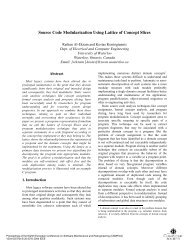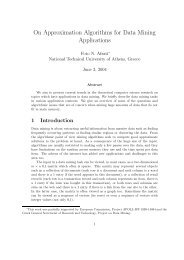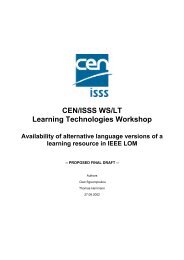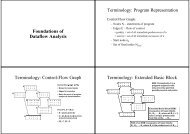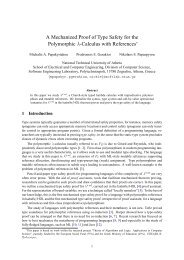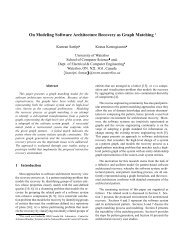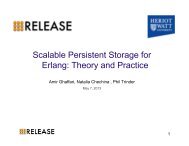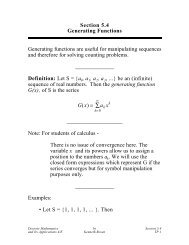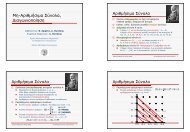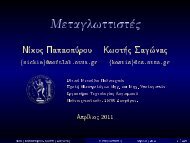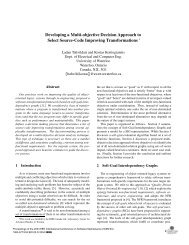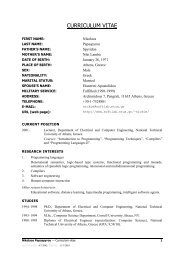Manual
Manual
Manual
You also want an ePaper? Increase the reach of your titles
YUMPU automatically turns print PDFs into web optimized ePapers that Google loves.
Chapter 5: The Bison Parser Algorithm 81<br />
5.9 Memory Management, and How to Avoid Memory<br />
Exhaustion<br />
The Bison parser stack can run out of memory if too many tokens are shifted and not<br />
reduced. When this happens, the parser function yyparse calls yyerror and then returns<br />
2.<br />
Because Bison parsers have growing stacks, hitting the upper limit usually results from<br />
using a right recursion instead of a left recursion, See Section 3.4 [Recursive Rules], page 45.<br />
By defining the macro YYMAXDEPTH, you can control how deep the parser stack can<br />
become before memory is exhausted. Define the macro with a value that is an integer.<br />
This value is the maximum number of tokens that can be shifted (and not reduced) before<br />
overflow.<br />
The stack space allowed is not necessarily allocated. If you specify a large value for<br />
YYMAXDEPTH, the parser normally allocates a small stack at first, and then makes it bigger by<br />
stages as needed. This increasing allocation happens automatically and silently. Therefore,<br />
you do not need to make YYMAXDEPTH painfully small merely to save space for ordinary<br />
inputs that do not need much stack.<br />
However, do not allow YYMAXDEPTH to be a value so large that arithmetic overflow could<br />
occur when calculating the size of the stack space. Also, do not allow YYMAXDEPTH to be<br />
less than YYINITDEPTH.<br />
The default value of YYMAXDEPTH, if you do not define it, is 10000.<br />
You can control how much stack is allocated initially by defining the macro YYINITDEPTH<br />
to a positive integer. For the C LALR(1) parser, this value must be a compile-time constant<br />
unless you are assuming C99 or some other target language or compiler that allows variablelength<br />
arrays. The default is 200.<br />
Do not allow YYINITDEPTH to be greater than YYMAXDEPTH.<br />
Because of semantical differences between C and C++, the LALR(1) parsers in C produced<br />
by Bison cannot grow when compiled by C++ compilers. In this precise case (compiling a<br />
C parser as C++) you are suggested to grow YYINITDEPTH. The Bison maintainers hope to<br />
fix this deficiency in a future release.



